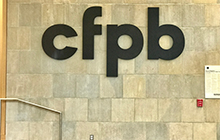 On June 6, 2023, the Consumer Financial Protection Bureau (CFPB) issued a Spotlight on financial institutions’ growing use of “chatbots” as a means to provide cost-effective customer service.
On June 6, 2023, the Consumer Financial Protection Bureau (CFPB) issued a Spotlight on financial institutions’ growing use of “chatbots” as a means to provide cost-effective customer service.
The use of chatbots in customer service has been gaining popularity among financial institutions in recent years. The ten largest commercial banks in the country have all deployed chatbots to engage with customers. Approximately 37% of the country’s population is estimated to have interacted with a bank’s chatbot in 2022, alone.
The Spotlight details certain concerns and risks arising from chatbot usage in the banking industry and emphasizes the need for caution and proper implementation. “To reduce costs, many financial institutions are integrating artificial intelligence technologies to steer people toward chatbots,” said CFPB Director Rohit Chopra. However, “[a] poorly deployed chatbot can lead to customer frustration, reduced trust, and even violations of the law.”
The CFPB notes that although chatbots may be useful and cost-effective tools to provide basic customer service, numerous consumers have complained to the CFPB about their struggles to obtain timely and satisfactory responses from financial institutions due to their use of chatbots for frontline customer service. Other complaints raise concerns about chatbots’ technical limitations and security risks. For instance, some customers may be left with no recourse if a chatbot is a customer’s only option to receive time sensitive help and the chatbot crashes or their inquiry is too advanced for the chatbot’s technology. Moreover, due to their automated nature, chatbots may be impersonated by “bad actors” and used in phishing scams. Chatbots also may be vulnerable to privacy attacks.
The Spotlight highlights three risks that arise from using chatbot technology as the primary method of customer service:
- Noncompliance with Consumer Financial Protection Laws. Among other obligations, federal consumer financial protection laws require financial institutions to respond to consumer disputes or questions or otherwise competently interact with customers about financial products or services. When a financial institution uses chatbots to handle customer service inquiries, the institution risks violating applicable consumer protection laws if, for example, the chatbot provides an inaccurate response, fails to recognize that the customer is invoking a legally-protected right, or provides insufficient protection of private information.
- Diminished Customer Service and Trust. When a financial institution uses chatbots to handle customer service inquiries, the institution risks diminishing their relationships with their customers if the chatbot fails to provide the customer with a timely and satisfactory response and prevents them from accessing a human customer service representative.
- Harm to Consumers. If a chatbot provides inaccurate information to a consumer, the consumer may then detrimentally rely on that misinformation and select the wrong product or service or unnecessarily incur fees or penalties.
The CFPB encourages financial institutions to be mindful of these risks and advises financial institutions against using chatbots as their primary method of customer service when it is reasonably clear that the chatbot may be unable to meet customer needs or ensure compliance with applicable law. The CFPB also signaled that financial institutions could expect their use of chatbot technology to be the subject of potential future examinations, noting that “[t]he CFPB is actively monitoring the market, and expects institutions using chatbots to do so in a manner consistent with the customer and legal obligations.”
